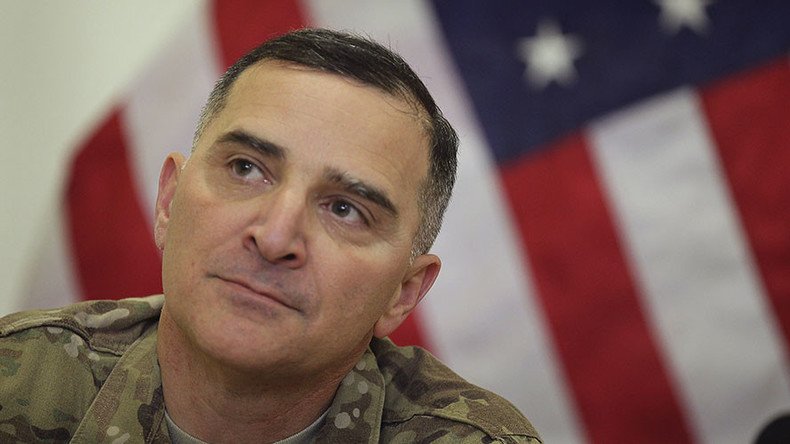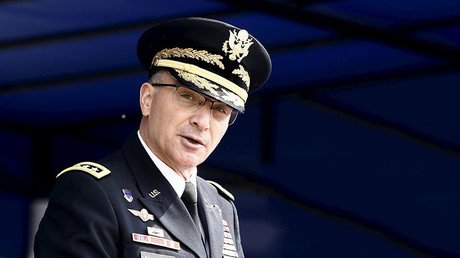'NATO permanent bases in Eastern Europe would wreck 1997 Founding Act with Russia'

NATO's new chief military commander in Europe, Curtis Scaparrotti, is calling for a permanent stationing of a third battalion in Europe, a move that will ratchet up tensions with Russia, Hall Gardner, Professor of International and Comparative Politics at the American University in Paris, told RT.
US General Scaparrotti believes the West faces an “aggressive Russia,” and is urging the bloc's forces to be ready to fight. Moreover, NATO is reportedly preparing to send 4,000 troops to Poland and the Baltic States as Moscow warns it will be forced to respond to the provocation.
RT: NATO is preparing to send more battalions to Eastern Europe, saying it is bolstering its forces in response to greater levels of Russian activity. How justified is that explanation? What is really going on behind the scenes?
Hall Gardner: Well, there is a toughening of the American position here. General [Curtis] Scaparrotti has argued - it hasn’t been approved yet - for a permanent stationing of a third battalion in Europe. And this would be a significant difference between the previous General [Philip] Breedlove, who was for a rotating deployment. This is a major change in policy. In effect, it would go back on the NATO–Russia Founding Act of 1997 in which the US had promised not to permanently deploy either troops or nuclear weapons in the new NATO countries.
RT: This is going to attract a strong reaction from Moscow too, isn’t it?
HG: Certainly, and Moscow has a problem with just the idea of rotating forces. But, as I said, those aren’t permanent and can be more easily drawn back than a proposed third permanent deployment. This is a major issue and it could undermine the NATO–Russia Founding Act.
RT: We've repeatedly seen NATO and Washington officials putting Moscow on the same level as ISIS when discussing threats. Where is this coming from in reality?
HG: Russia and the US should be forming a concert against ISIS. This is a threat to everyone. ISIS blew up a Russian plane in Egypt; ISIS is attacking Russian interests in Syria; and even the US allies should realize that ISIS is a major threat and that Russia needs to be part of the coalition to fight… NATO is talking about the military transparency and finding a way to ease the situation there.
RT: What’s the end game here? Where is this going ahead, do you think, in the next couple of years? How far will the West push this?
HG: I think the issue is: we need a truly realistic strategy towards Moscow - ‘we’ meaning the Americans’ and NATO alliance - that recognizes that we have to deal with the situation as it is. The NATO-Russia Council met for the first time in two years just last week. This is at least - even though it seems on the surface to accomplish anything – the very fact that two sides can actually meet and talk out their differences is a step in the right direction. What we need is more of that – discussing military transparency, Afghanistan, Crimea, and ultimately Syria, as well.
The statements, views and opinions expressed in this column are solely those of the author and do not necessarily represent those of RT.













